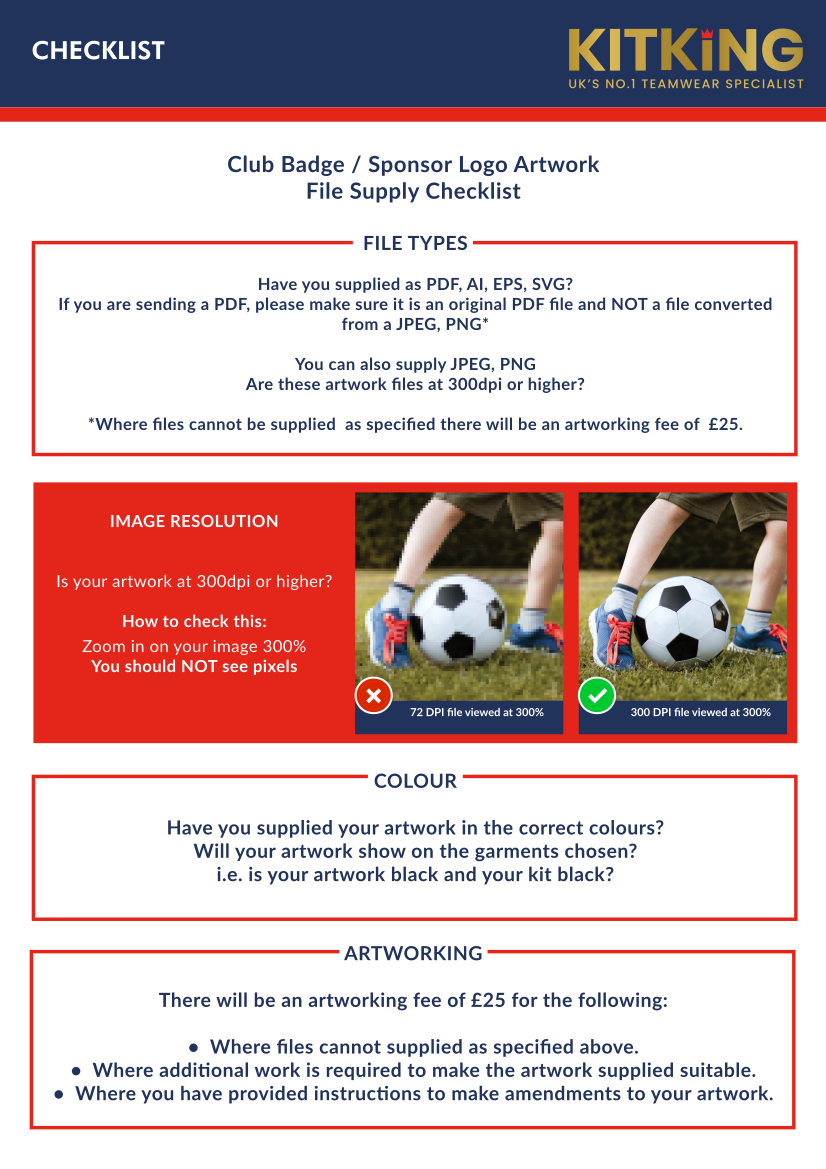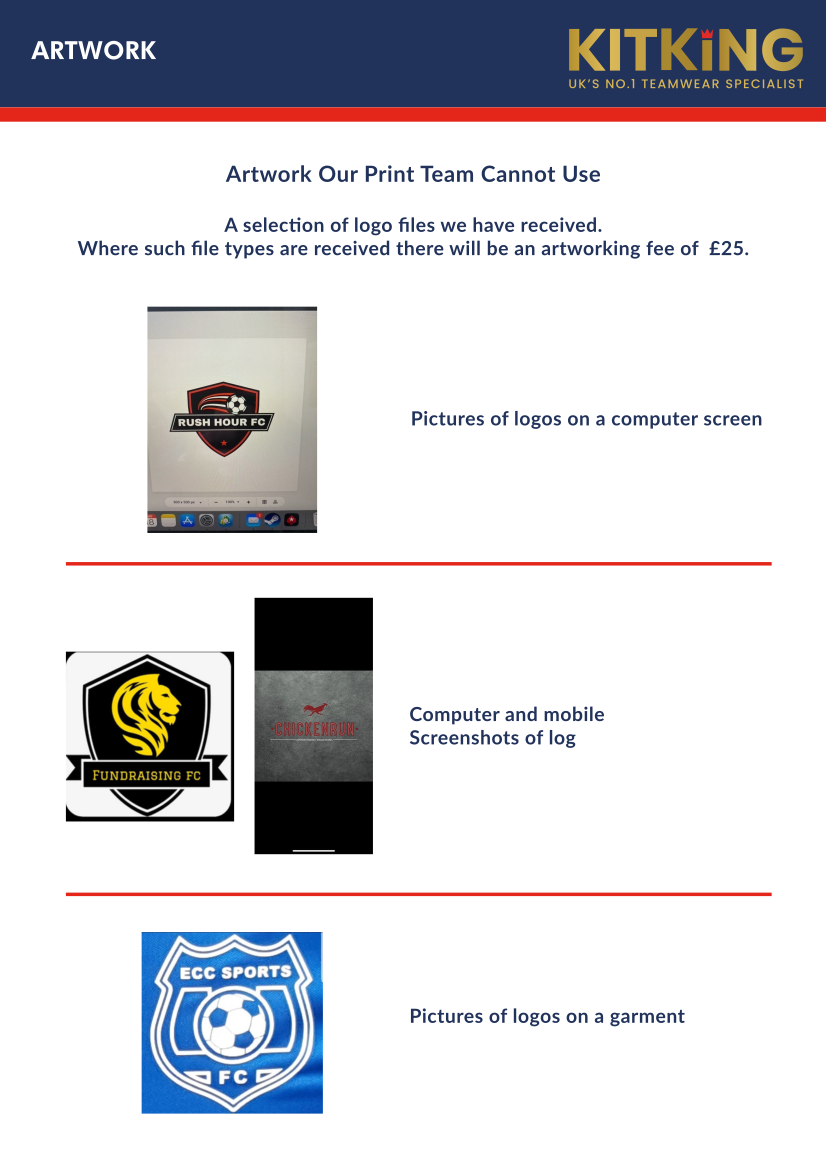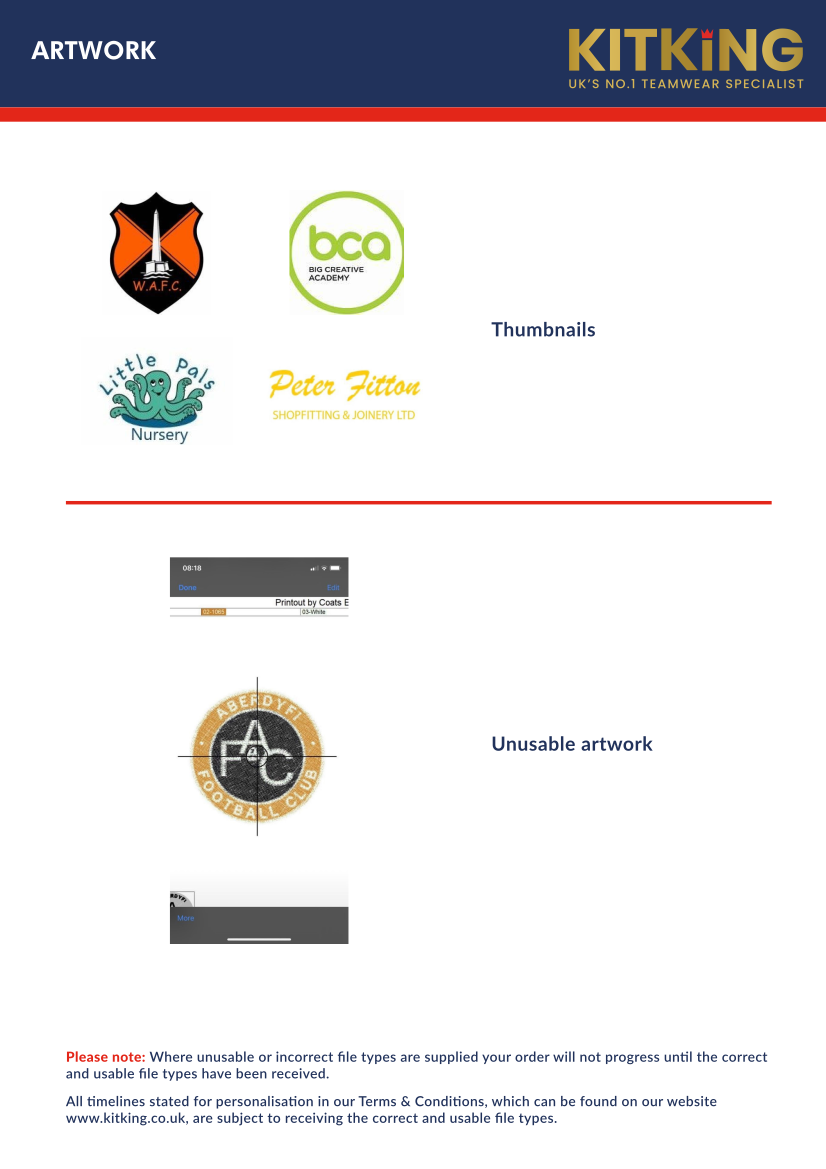Artwork File Supply Checklist
FAQ'S
We accept the following files:
Bitmap files: .jpg, .png
Vector files: .pdf, .ai, .eps, .svg
Here at Kitking we endeavour to give you the best print and embroidery results, however, we can only do this if you provide us with the correct images / file types.
Bitmap images are stored as a tiny series of dots called pixels.
If you are submitting a bitmap file we require a high resolution bitmap file, ideally 300 dpi (dots per inch). The higher the dpi the clearer the image. On your computer screen a 60 dpi image may look clear however when we print it, it may become pixelated. When you enlarge the image on your screen does it pixelate? If so this is a low resolution image.
With a bitmap image if the resolution is low, it does not mean we cannot use it, just that the results will not be as good as an image that is of a higher resolution. Further, it will be difficult to edit the image should you require us to or if we need to i.e. remove backgrounds or shapes.
Vector images are not based on pixel patterns, but instead use mathematical formulas to draw smooth lines and curves that can be combined to create an image from geometric objects such as circles and polygons.
Vector files allow us edit logos should you require us to or if we need to i.e. remove backgrounds or shapes.
That’s ok, we do offer an art working service where we can create a new club badge / sponsor logo. Please call our sales team who will be able to help. Please be aware that there is a fee of £25 per logo.
Where your file is not suitable i.e. low resolution, not one of the files accepted we can create the correct file for you. Please call our sales team who will be able to help. Please be aware that there is a fee of £25 per logo.
You will be required to approve any artwork created before final files are created. Once approved you will be sent a .jpeg and .pdf version of the artwork. KITKING Limited will also hold a copy of the original files for the purpose of digitisation and future orders.
Yes, if you would like an embroidered badge it will need to be digitized. This process creates 3 file types (EMB, DST and a preview PDF) that will be used by the machines that embroider your badge.














